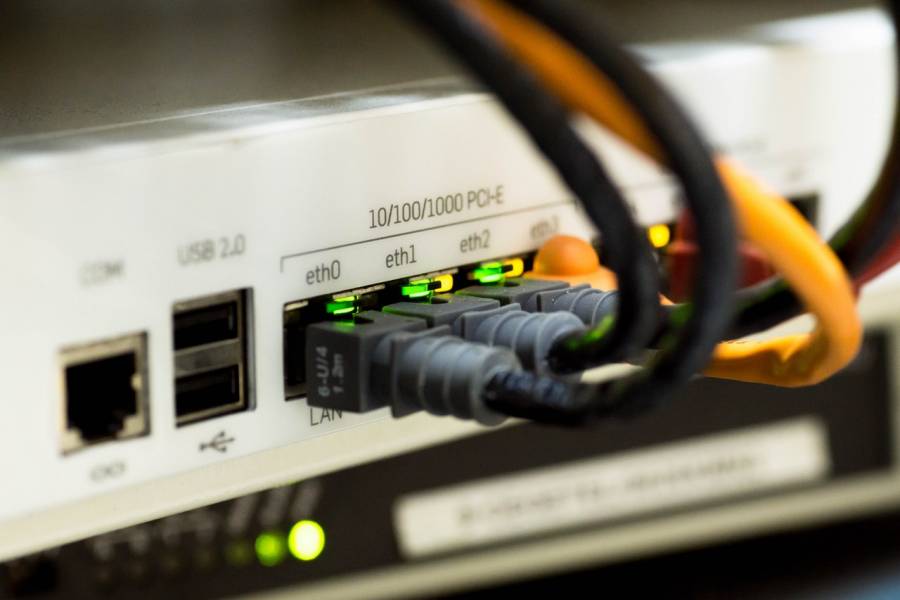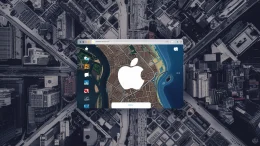You’ll find little pushback to the idea that the internet is an awesome tool that has permanently and fundamentally changed our society, culture, and technological potential. Today, anyone with an internet-connected device and a couple hours of free time can talk to someone across the world, tap into an archive of nearly infinite knowledge, and start a business from scratch.
But like most techno-optimists, I can’t help but imagine what the world will be like when the internet evolves. Will we soon be working with download and upload speeds that make today’s standards seem like dial-up? Will we be accessing and enjoying content in ways that make virtual reality look antiquated?
The futurist in me wants to imagine a world where Holodeck-like simulations are possible and internet accessibility is unfettered and universal. But the realist in me understands that there are a great many issues to sort out before we can take even a single step forward.
What are the key logistical, ethical, and legal issues that stand between us and the future of the internet?
Anonymity and Privacy
Privacy is a complex and multifaceted topic. To what extent should an individual be granted privacy when it comes to browsing the internet? If we abandon the right to privacy, we lose access to some critical functions and opportunities; whistleblowers and victims of crimes will have no reliable outlet where they can speak out. And in oppressive government regimes, individuals will have practically no ability to communicate openly or organize. But if we solidify privacy rights and enable total anonymity in certain cases, we open the door to various criminal activities. Where do we draw the line?
The problem is complicated by the fact that many corporations are harvesting consumer data at alarming rates. By itself, this isn’t necessarily a bad thing – but it can lead to extreme corporate power and control.
Communities and Accessibility
Should we allow there to be “open” communities, where everyone is allowed to participate in discussions and post whatever content they want? If so, how do you handle inciting incidents that result in violence in the real world? Do we limit the types of content that can be shared or discussed, or limit the users allowed in these communities? If so, who’s allowed to make the rules?
Questionable Content
How do we handle the presence of questionable content on the internet? Pornography, racist comments, and bullying-like behavior are considered offensive by many and downright destructive in some cases. But should it be allowed on the web? If so, should it be restricted to certain platforms? How do we control accessibility?
Encryption and “Dark” Web
Along similar lines, advances in encryption and the emergence of the “dark web” make it possible for almost anyone to skirt the rules of the mainstream internet. If we overly regulate and restrict activities on the mainstream internet, will we be adding fuel to the fire of these underground communities? How do we handle these types of websites?
Monopolies and Corporate Power
In some ways, the internet has democratized entrepreneurship. By using WordPress, Webflow, and other web development services, anyone with a business plan or a good idea can start their own website from scratch and start making money.
But the internet has also allowed powerful corporate entities to come to power. Google dominates the search engine market and is almost a practical necessity if you want to find anything on the web. Google has the power to change its search engine algorithm on a whim, controlling the types of content accessible to billions of people. Is it acceptable for Google to have this power? If not, how do we attempt to control or mitigate it?
Moderation and Responsibility
Many of these issues come with the added problem of figuring out moderation and responsibility. There are often spectrums, where both extremes are undesirable; for example, total anonymity and total lack of privacy both seem unacceptable to most people. Our goal is to figure out where to draw the line, but who is responsible for determining where that line is? Who gets to say when a piece of content or a website has crossed that line?
The matter is even more complicated with certain types of websites and online interactions. Is Twitter responsible for every tweet posted on its platform? What about direct messages?
Logistical Concerns
Of course, there are also some logistical concerns when it comes to the future of the internet. The end of Moore’s Law has taught us that we may be approaching the limits of our knowledge of physics; it’s getting harder and harder to keep making progress in the processing power of computer chips. It’s also getting harder and harder to innovate new concepts for the distribution and availability of internet access.
There’s also an abundance of malware and cybercriminals eager to wreak havoc and make money, creating an arms race between security experts and wrongdoers. How do we develop a strong internet infrastructure that can resist such attacks?
The Internet Is Imperfect
No matter what, we need to accept that the internet – as well as any solutions we propose related to the internet – is imperfect. There are no solutions that magically make all the problems and ethical issues of the internet disappear in a way that makes everyone happy. Our mentality shouldn’t lead us to find problems and fix them, but rather to help us find compromises, middle grounds, and acceptable limits that allow us to continue making progress with minimal harm.
The Stakes Are High
Here’s another important considering factor in this discussion: the stakes are high. Cyberthreats and internet-related issues aren’t just a threat to individuals. In some cases, they can be a threat to an entire nation, or all of human civilization. That may seem like an exaggeration, especially when I spent a good chunk of this article discussing how people can and should use social media.
But the reality is we’ve entered a new era of warfare, where conventional weapons like guns and bombs have proven inefficient compared to cyberattacks, cyberespionage, and indeed, cyberwarfare overall. If an enemy can covertly tap into government networks, monitor and manipulate the population, and seize control of critical resources that are dependent on the infrastructure provided by the internet, it wouldn’t take much for them to cause significant damage – and potentially change the course of human history.
The Pace of Change Is Fast
Adding to the scare factor is the fact that change happens quickly. In the span of 30 years, the internet went from being a novelty known only to tech geeks and insiders to a tool accessible to practically everyone at any time – even using mobile devices to tap into it.
Policymakers are burdened by tradition, bureaucracy, and slow-moving processes that make it nearly impossible to respond to new threats and changing paradigms in a timely manner. This adds a wrinkle to the equation; even if we somehow figure out how to navigate these tough issues, will we be able to act quickly enough to make a difference?
The World Is Complicated
I don’t purport to have all the answers, or even a few of the answers. Instead, I’m mostly just asking important questions. To an extent, this is all we can really do at the moment. The world is a complicated place and the internet is a complicated subject of discussion. A person’s viewpoint on ethics and legal issues are going to be a byproduct of their personal values, beliefs, past experiences, and current priorities – and there aren’t many popular perspectives that are outright “wrong.”
If we’re going to work together to build a better, more impressive, even more revolutionary internet, we need to be willing to confront these questions and address them with the complex discussions they deserve. Until then, our progress will be at least somewhat capped.

















